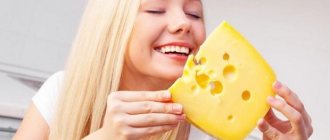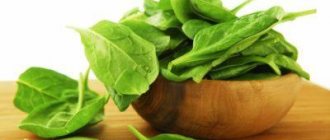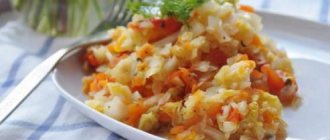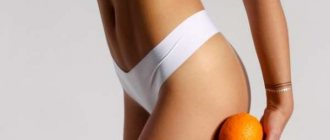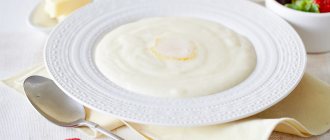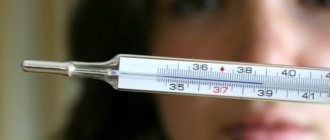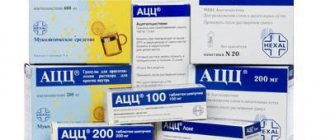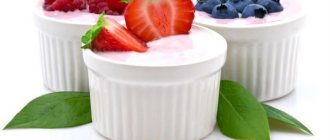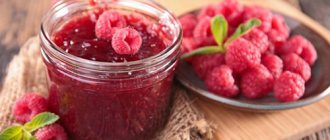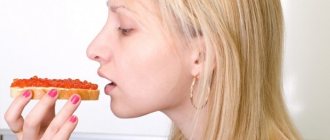The benefits of sunflower seeds during breastfeeding
Indeed, consuming sunflower seeds has great benefits for a nursing mother. First of all, it is worth noting the high content of vitamins and minerals, which will be useful for both the mother and the newborn baby:
- Vitamin D is very useful for the beauty of skin, hair and nails. After all, a young mother should not forget about herself when caring for her child. This vitamin will help your baby with mental development. The seeds contain almost as much vitamin D as cod liver.
- Vitamin A has a calming effect. This is very important for the mother of a newborn. Passed through milk to a child, this vitamin will have a positive effect on his nervous system.
- Fatty acids will have a positive effect on metabolism and heart function.
- There is even more potassium in sunflower seeds, which is necessary for the functioning of the heart muscle, than in bananas.
- The seeds are rich in calcium. This is an important point, since replenishing calcium losses from the mother’s body is simply necessary. And calcium will be very useful for the baby, strengthening the skeletal system and promoting proper development and growth.
- The seeds contain iron, which plays an important role in a woman’s recovery after childbirth. And this will also be an excellent prevention of anemia in the baby.
- Sunflower seeds are rich in easily digestible vegetable protein, which is an excellent building material for all organs and systems of mother and baby.
- Sunflower seeds are also useful for breastfeeding because they help to establish and establish sufficient lactation.
- Another advantage of the seeds is the psychological effect. For example, many young mothers quit smoking by eating sunflower seeds. Every time you want to take a puff, you need to chew a few seeds. Most women note a positive effect.
There is an opinion that a nursing mother needs to eat sunflower seeds in order to increase the nutritional value and fat content of milk
Modern experts refute this statement. Studies have shown that the fat content of milk is genetically determined, and it is impossible to increase it by eating this or that product.
Experts' opinions on seeds for breastfeeding
The opinions of pediatricians vary, so we recommend weighing the pros and cons and answering for yourself the question of whether a nursing mother can eat seeds.
Benefits for mother and child
Every young mother bravely endures sleepless nights, children’s whims, routine in everyday life and long periods of being confined to “four walls.” However, many people know that if she is depressed, out of mood, the child also experiences negative emotions. For breastfeeding women, antidepressants, chocolate and alcohol are prohibited, and there is often not enough time or opportunity for hobbies and entertainment outside the home...
The circle closes, which is why many mothers find joy in husking seeds while walking or watching a TV series.
Harm of sunflower seeds for a nursing mother
Despite the obvious benefits, you need to remember that any product, if used carelessly, can cause a lot of harm to the fragile body of a newborn.
We recommend reading: Raisins when breastfeeding a newborn
- The possibility of allergic reactions should not be excluded. You need to introduce seeds into your diet in small doses. After feeding, carefully monitor the baby’s reaction to see if there is any anxiety, discomfort or rash on the baby’s body.
- Another unpleasant moment is constipation. If you overuse sunflower seeds, you may encounter this problem for both the nursing mother and the child.
- Seeds can cause colic and gas in your baby.
- The high calorie content of the product can cause excess weight gain in a nursing mother. And this is completely useless, since it not only spoils the appearance, but also causes many associated diseases. A child needs a healthy active mother!
- Salted seeds can negatively affect the taste of milk. This should be taken seriously, as the baby may abandon the breast.
- The shells of seeds may contain many harmful bacteria, which, if ingested, will cause poisoning. Before use, you need to thoroughly heat the seeds in a frying pan.
- The constant clicking of seeds in the shell can negatively affect the condition of teeth, damaging tooth enamel.
Norm of sunflower seeds for a nursing woman
A nursing mother should be careful about her diet and introduce any new product carefully. For the first time, 15-20 g of seeds per day will be enough. If the baby does not experience any negative reactions in the form of colic or skin rashes, then the dose can be gradually increased to 60-100 g per day.
Don't forget about the calorie content of the product! To provide the body with valuable vitamins and microelements, 100 g of seeds is enough. Larger amounts can cause obesity
How to choose seeds for mother during breastfeeding
Most people prefer roasted sunflower seeds, they are tastier and more aromatic. Unfortunately, when breastfeeding, it is not the taste that matters, but the usefulness of the product. Raw seeds are healthier. They contain more vitamins and minerals, which are destroyed during heat treatment. They are less fatty.
If you really want, you can lightly fry the seeds, but this should be done in a dry frying pan or with minimal addition of oil. We must remember that fried seeds carry more danger in the form of heartburn in the mother and colic in the baby.
You need to buy peeled seeds, packaged in a factory bag: this is a guarantee that the product is safe and does not contain harmful bacteria. It is also better to buy shelled seeds in factory packaging, giving preference to a product without salt. It is better if the bag is transparent to ensure there is no mold, mildew or foreign matter.
Another type in which the seeds can be consumed is kozinaki. The delicacy is very tasty and high in calories
You should not buy seeds at grandmothers' markets, as this does not guarantee that the product is safe. Purchasing seeds in bulk is also risky. Such seeds should be rinsed well under running water and then thoroughly calcined in a frying pan to destroy dirt and bacteria.
The combination of simple carbohydrates (sugar) and fats (sunflower seeds) is a direct path to excess weight. Of course, reasonable use of such a product will not hurt, but you need to be very careful with it, especially if the mother already has problems with excess body weight. A large amount of sweets in the diet of a nursing mother can cause diathesis in the baby!
Sunflower seeds
The most popular type of seeds is sunflower seeds. And this is great, because this product contains a large amount of vitamins and minerals.
Nutritional value per 100 grams of product:
| Proteins, g | Fats, gr | Dietary fiber, g | Carbohydrates, g | Calories, kcal |
| 21 | 51,46 | 8,6 | 11,4 | 584 |
Moderate consumption of sunflower seeds will help replenish the body of a nursing mother with essential fatty acids and vitamins. By eating 100 grams of unroasted sunflower seeds, you cover the body's daily need for the following elements: protein - 40% of the daily requirement, vitamin E - 130%, vitamin B5 - 70%, vitamin B6-40%, selenium–115%, zinc–32%, iron–20%, fiber–45%, potassium–25%.
Beneficial features:
- Amino acids and polyunsaturated fatty acids reduce cholesterol levels and regulate metabolism in the body.
- Antioxidants rejuvenate cells and alkalize the body.
- High magnesium content strengthens the nervous system.
- Vitamin D improves the absorption of calcium in both the mother and the child, and prevents the development of rickets in infants.
- Vitamin E has a strong antioxidant effect and reduces the risk of cancer.
- Vegetable protein is completely absorbed by the body.
- Roasted sunflower seeds lose more nutrients. It is recommended to consume the seeds raw or by drying them in the sun.
Features of use:
- Sunflower seeds are a high-calorie product. Those watching their figure should limit their use.
- A nursing mother can take seeds in an amount of no more than 100 grams per day. Due to their high fat content, they provoke colic and intestinal upset in the child.
- During the growth process, sunflower, like no other crop, absorbs many minerals from the ground, including heavy metals. With excessive consumption of seeds, cadmium accumulates inside us and leads to intoxication of the body and the development of various neoplasms.
- Although sunflower seeds are not highly allergenic foods, they should be introduced into the diet of a nursing mother with caution. Start with a few seeds, monitoring the child's reaction.
- Choose seeds in their shells; avoid buying shelled seeds. In peeled seeds, all beneficial substances quickly oxidize and evaporate.
- It is recommended to rinse raw seeds in cool water before use. And dry in the oven for 20 minutes at a temperature of 80-90°C.
Mom's dependence on seeds
Abuse of seeds can cause addiction. Of course, this is not drunkenness or smoking and does not carry serious negative consequences, but it can somewhat complicate the life of a young mother who is breastfeeding. The negative consequences of dependence on seeds include:
- Constipation in mother and baby.
- Colic in a child.
- Dental problems in a nursing woman.
- Excess weight.
- Constant desire to chew seeds and irritation if the packaging is not at hand.
How to fight:
- You need to eat the seeds long before feeding the baby (at least 2-3 hours). Thus, the negative effects of excessively eating seeds will not affect the baby.
- Eat healthy foods (porridge, chicken, green vegetables), drink more water to “dilute” breast milk and minimize the effect of seeds on it.
- Replace sunflower seeds with pumpkin seeds. They are healthier and will not have a negative impact on the baby.
- Gradually reduce the number of seeds to normal (no more than 100 g per day).
Sunflower seeds are healthy and nutritious. You shouldn’t completely give them up while breastfeeding. The correct approach to consuming the product and a sense of proportion will be the key to a complete and varied diet for the mother and the comfort of the baby. You can learn about the benefits and harms of other seeds in the diet of a nursing mother here.
Which seeds are healthier and what are their benefits?
There are a large number of grains consumed as food, and each type has its own beneficial properties. In our latitudes, pumpkin and sunflower seeds are the most popular. That is why we will focus our attention on them.
Sunflower seeds during breastfeeding are of great benefit to the body of mother and baby. Of course, if they are consumed within the recommended limits.
What are the benefits of sunflower seeds:
- are a source of healthy fiber;
- help to establish the proper functioning of the gastrointestinal tract, which will help “get rid of the belly after childbirth”;
- due to the high content of vitamin E, they have a positive effect on the condition of the skin, as well as the body as a whole;
- lower cholesterol levels, which prevents the formation of blood clots;
- normalize the functioning of the thyroid gland, which is responsible for hormonal regulation in the body;
- contain a large amount of protein - the main building material for body cells;
- gently and gradually reduce blood pressure, which makes them useful for hypertension;
- contain a sufficient amount of iron, which is involved in the process of saturating the blood with oxygen.
Pumpkin seeds are no less useful during breastfeeding. However, their consumption rate is even lower than that of sunflower grains.
Benefits of pumpkin seeds:
- contain B vitamins, as well as A, C, E and D;
- they contain the most important microelements: magnesium, phosphorus, potassium, magnesium, iron, zinc, copper, selenium, sodium and calcium;
- the seeds contain: up to 50% vegetable fats, 25% proteins, 15% carbohydrates, as well as dietary fiber;
- due to the content of zinc and phosphorus, they have a positive effect on brain function, therefore they are indicated for severe mental stress;
- Vitamin C helps strengthen the immune system;
- have a positive effect on the psychological state, relieve postpartum depression;
- due to the content of vitamin A, they improve vision;
- have a positive effect on the functioning of the kidneys and urinary system as a whole, preventing the development of inflammatory processes;
- reduce blood glucose levels;
- regulate cholesterol levels, preventing the formation of plaques on artery walls;
- promote the removal of toxins and harmful substances, including lead and cadmium;
- Cucurbetin, contained in the seeds, has an anthelmintic effect;
- promote gentle cleansing of the liver from fatty deposits;
- have a beneficial effect on the skeletal system due to the vitamin D content;
- help improve the condition of skin and nails;
- help cope with nausea during motion sickness on the road and during boat trips;
- prevent the appearance of disturbances in the process of defecation, providing a mild laxative effect;
- normalize blood pressure levels;
- have a positive effect on the condition of the joints, therefore preventing the development of arthritis.
The third most popular type is flax seeds. If doctors have a relatively unanimous opinion regarding pumpkin and sunflower, then regarding flaxseeds the information is quite contradictory.
Canadian scientists prove that their use in the last months of pregnancy, as well as during lactation, is undesirable. The fact is that flaxseed oil affects a woman’s hormonal levels, which can trigger premature birth.
However, domestic scientists see great benefits in their use during breastfeeding. Let's figure out what the obvious benefits are.
Flaxseed oil is a leader in the content of polyunsaturated fats, especially Omega 3. Thanks to this, its consumption has a positive effect on the condition of the mother’s body, and also promotes the development of the cellular structures of the child’s brain.
Flaxseed oil has a beneficial effect on the functioning of the gastrointestinal tract, endocrine system, and kidneys. Eating flax seeds can significantly speed up recovery after childbirth. However, in their use it is also necessary to observe strict measures. It is better to limit yourself to adding a teaspoon of seeds to your morning porridge or vegetable salad.
Therefore, it is quite difficult to decide unambiguously whether breastfeeding women can eat seeds. Each type of seed has undeniable benefits, but possible harm must also be taken into account. The introduction of any product into the diet should be gradual. It is necessary to start with a small amount and increase it very gradually so as not to cause a negative reaction from the health of the baby.
